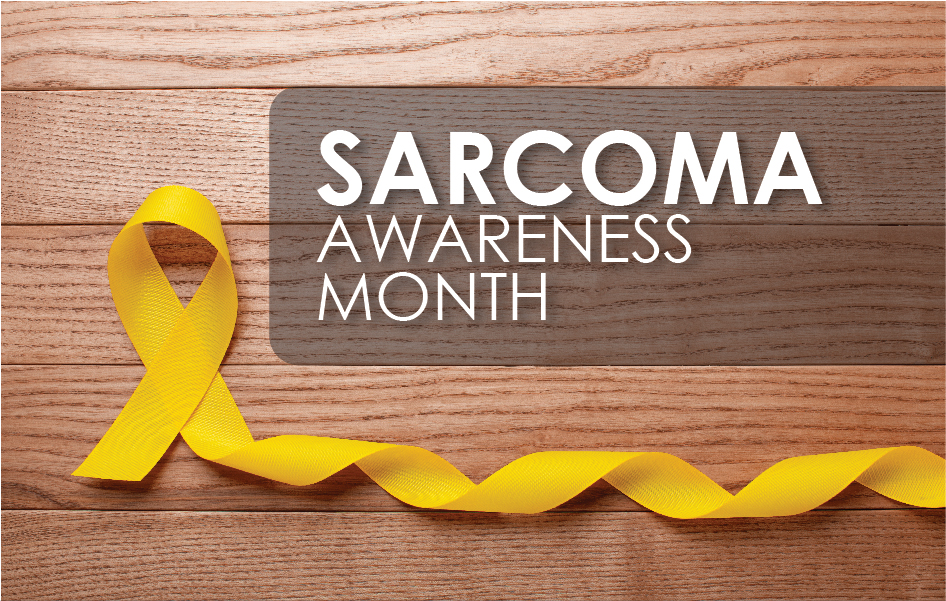July marks Sarcoma Awareness Month, a time to educate the public and healthcare professionals about this rare and often misunderstood form of cancer. As oncologists and healthcare providers, it's crucial that we stay informed about the latest developments in sarcoma research and treatment to provide our patients with the best possible care.
Understanding Sarcomas
Sarcomas are a group of cancers that originate in the bones or soft tissues of the body. These rare cancers can develop in various locations, including cartilage, fat, muscle, blood vessels, tendons, nerves, and around joints. Osteosarcomas form in bone, liposarcomas in fat, rhabdomyosarcomas in muscle, and Ewing sarcomas in bone and soft tissue. Interestingly, sarcomas are more commonly diagnosed among teenagers for bone and joint cancers, while soft tissue sarcomas typically affect individuals aged 55 and older. In 2024, the National Cancer Institute's Surveillance, Epidemiology, and End Results Program (SEER) estimates approximately 13,590 cases of soft tissue sarcoma and 3,970 cases of bone and joint cancer in the United States.Risk Factors and Prevention
While sarcomas cannot be entirely prevented, healthcare professionals can help patients reduce their risk by educating them about potential risk factors. These include exposure to radiation, industrial chemicals, and certain genetic disorders such as retinoblastoma, tuberous sclerosis, Werner syndrome, and nevoid basal cell carcinoma syndrome. Long-term lymphedema in the arms or legs and certain conditions like Paget disease, Diamond-Blackfan anemia, and Werner syndrome are also associated with an increased risk of sarcoma.Treatment for sarcoma typically involves a combination of the following:
Surgery: The primary treatment option, surgery, aims to remove the entire tumor with a margin of healthy tissue surrounding it. This approach helps reduce the risk of a recurrence.Radiation therapy: High-energy beams of radiation are used to kill cancer cells or shrink tumors before or after surgery. Radiation therapy can also be used to target remaining cancer cells after surgery or to manage pain caused by the tumor.
Chemotherapy: Powerful drugs delivered intravenously or orally are used to target and eliminate cancer cells throughout the body. Chemotherapy is particularly helpful for sarcomas that have spread beyond the original location (metastasized).
The Road to Better Treatments: The Role of HCP Participation in Research
Despite advancements in the field of oncology, research on sarcomas continues to lag behind other cancers due to their relative rarity. This lack of extensive research translates to a limited understanding of the disease and its progression, hindering the development of more effective treatment options. However, dedicated HCPs like you can play a vital role in accelerating progress by participating in paid medical surveys and sharing your real-time, valuable insights.
Here's how your participation in MMP surveys makes a difference:
Informs Treatment Strategies: Survey responses from HCPs provide data on real-world clinical practices, treatment outcomes, and patient experiences. This information helps researchers and oncologists understand the effectiveness of current therapies and identify areas for improvement.Explores New Therapies: Surveys can also explore the potential of emerging treatment options. By sharing insights on your clinical experience and perspectives on novel therapies, you can contribute to the design and evaluation of future clinical trials.
Improves Patient Outcomes: Ultimately, the goal of research is to improve patient outcomes. By participating in surveys, you contribute to the development of more effective treatment strategies, leading to improved survival rates and a better quality of life for patients with sarcoma.
Participating in My Medical Panel’s surveys is simple and rewarding.
My Medical Panel (MMP) understands the valuable time commitment of HCPs. That's why we've designed our survey participation process to be convenient and rewarding.Here's what you can expect when you join MMP:
Convenience: Complete medical surveys from the comfort of your own device, at your own pace. MMP surveys are designed to be concise and time-efficient, allowing you to contribute valuable insights without disrupting your busy schedule.Compensation: Earn honoraria for your time and expertise. Your participation in these surveys is recognized and valued. MMP offers generous honoraria to acknowledge your contribution to medical research.
Conclusion:
Sarcoma Awareness Month serves as a reminder of the importance of educating ourselves and our patients about this rare form of cancer. By staying informed about the latest developments in sarcoma research and treatment and by actively participating in medical surveys, healthcare professionals can contribute to the fight against this disease and provide their patients with the best possible care.Are you a physician or healthcare practitioner?
My Medical Panel (MMP) is the home of paid online medical surveys, where healthcare professionals can attend surveys and get compensated for their time spent completing healthcare surveys in their specialty with generous honoraria of up to $1000 for each survey.Sign up now to My Medical Panel to experience the epitome of convenient paid online medical survey participation.











